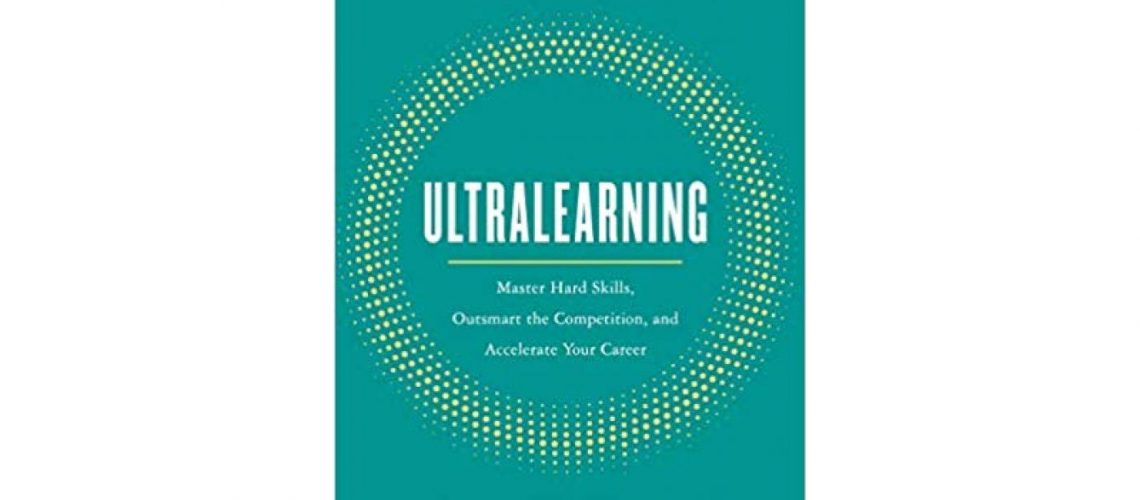Master Hard Skills, Outsmart the Competition, and Accelerate Your Career.
The essential guide to future-proof your career and maximize your competitive advantage through self-education.
If you want to accomplish more and stand apart from everyone else, you need to become an ultralearner. Scott Young documents the methods he and others have used to acquire knowledge and shows that ultralearning is a powerful tool anyone can use to improve their career, studies, and life.
Ultralearning shares a proven framework to master skills, and offers insights into how you can organize and execute a plan to learn anything deeply and quickly, without teachers or budget-busting tuition costs.
Whether the goal is to be fluent in a language (or ten languages), earn the equivalent of a college degree in a fraction of the time, or master multiple tools to build a product or business from the ground up, the principles in Ultralearning will guide you to success.
Animated Video by Productivity Game
Key Takeaways
"Ultralearning offers a path to master those things that will bring you deep satisfaction and self-confidence."
Ultra learning is different than most learning in two specific ways—it’s self-directed and intense.
Ultra learners take control, they don’t simply listen to a teacher. They gather lessons techniques, and strategies from multiple teachers and create their own learning path that allows them to develop the knowledge and skills they’ll actually use in the real world. You don’t dip your toes in, you fully immerse yourself by establishing an aggressive learning schedule.
3 Ultralearning Components
1. Make a Meta Learning Map
You need to take the learning process in your own hands. You can’t trust a school or one mentor to teach you exactly what you need to know. Spend up to 10% of your allotted learning time understanding the components of the skill you want to learn by doing Google searches, skimming books, and reaching out to multiple experts to answer the following question:
- If I want to do blank, what concepts do I need to understand, what facts do I need to memorize, and what procedures do I need to practice?
The first part requires you to determine what exactly you want to be able to do at the end of your ultra learning project.
Once you’ve specified exactly what you want to do with a skill take out a piece of paper and draw three columns.
1. What concepts do I need to understand?
2. What facts do I need to memorize?
3. What procedures/movements do I need to practice?
Once you’ve created a list of things you need to understand, memorize, and practice, identify a few things on your list that you think will be critical to your success, and challenging to learn. Once you have identified those items, design drills for each item.
2. Design Practice Drills
Ben Franklin was a great writer. His writing was so good, that the other founding fathers asked him to edit the Declaration of Independence. Franklin became such a good writer because he designed specific writing drills for himself.
Franklin realized that other writers that he admired used a wider array of words, and were able to craft more compelling arguments than he could. So Franklin developed an exercise to strengthen each of those sub skills.
Exercise 1 Involved taking a piece of Pros he had written, and seeing how many words he could replace with synonyms, while still maintaining the rhyme of the pros.
Exercise 2 Involved reading articles in his favorite magazine, and writing notes next to them. Then days later he would try to reconstruct the main argument from each article from memory. After finishing his version, he would go back to the article, and discover the faults he had made.
Like Franklin, you can take the items you want to understand, memorize, and ingrain, and design practice drills for them.
- You can think of designing practice drills like discovering or developing exercises to isolate a key muscle like a bodybuilder would do dips to target the triceps.
3. Over Learn
After you designed a handful of practice drills, commit to over learning. You can think of over learning, like taking grade 11+12 Math to prepare for a grade 11 Math exam. The idea is to go beyond the requirements of what you’re trying to learn, so that what you’re learning is more likely to stick.
- A study found that students that take a Calculus class immediately after an Algebra class recall significantly more Algebra than the students who just took the Algebra class. Even if those Algebra only students got better grades.
To embrace over learning, ask yourself: what’s my target performance, and what’s the next level? Expose yourself to next level material, or committee to an even harder performance than the one you’re training for.


